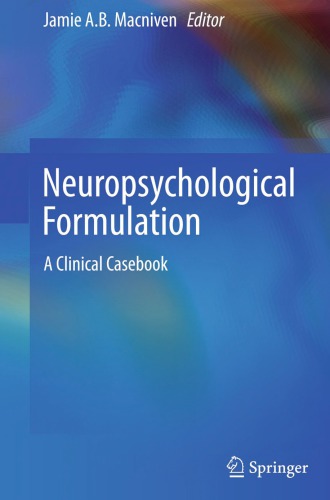

Most ebook files are in PDF format, so you can easily read them using various software such as Foxit Reader or directly on the Google Chrome browser.
Some ebook files are released by publishers in other formats such as .awz, .mobi, .epub, .fb2, etc. You may need to install specific software to read these formats on mobile/PC, such as Calibre.
Please read the tutorial at this link: https://ebookbell.com/faq
We offer FREE conversion to the popular formats you request; however, this may take some time. Therefore, right after payment, please email us, and we will try to provide the service as quickly as possible.
For some exceptional file formats or broken links (if any), please refrain from opening any disputes. Instead, email us first, and we will try to assist within a maximum of 6 hours.
EbookBell Team

4.8
84 reviewsThis forward-looking reference defines and illustrates the process and themes of formulation in neuropsychology and places it in the vanguard of current practice. The book explains the types of information that go into formulations, how they are gathered, and how they are synthesized into a clinically useful presentation describing psychological conditions resulting from neurological illness or injury. Cases highlight the relevance and flexibility of narrative- and diagram-based formulation methods in approaching a diverse range of issues and conditions, from decisional capacity to cultural considerations, Huntington's disease to deep dyslexia. Throughout this volume, formulation is shown as integral to treatment and rehabilitation planning alongside clinical assessment, cognitive testing, and diagnosis.
Included among the topics:
Formulation is essential in good neuropsychological assessment as it provides the foundation for appropriate intervention by bringi
ng together the results of different evaluations into a coherent whole. . . . Macniven’s compelling and constructive book has assembled internationally known experts from diverse backgrounds to provide illumination of their own views and approaches to formulation, which makes the book a pleasure to read and should establish it as essential reading on clinical psychology and neuropsychology training courses. – Professor Barbara A. Wilson OBE, Ph.D., D.Sc. Neuropsychologists, clinical psychologists, and rehabilitation specialists will find Neuropsychological Formulation of critical importance not only to the literature of the field, but also to the developing role of clinical neuropsychology within healthcare systems.